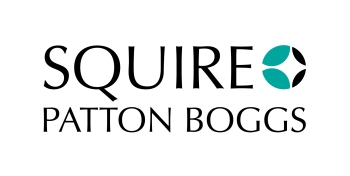In the recent case of Patel v Barlow's Solicitors and others [2020] 2753 (Ch) the High Court found that a Quistclose Trust arose in a situation where solicitors were forwarded monies by a third party for a specific purpose.
A Quistclose trust arises where an individual transfers money to a recipient for a specific purpose, and there is no intention for that money to be applied to any other purpose. Where this arrangement arises, the money remains the property of the transferor unless and until it is applied to the intended purpose.
Quistclose trusts classically arise in situations where loans are made for a specific purpose, as in the leading case of Twinsectra Ltd v Yardley and ors [2002] UKHL 12). Disputes over Quistclose trusts often arise in insolvency situations.
Here, the claimant sought the return of a capital advance for the purchase of various properties from a dissolved joint venture. Pursuant to this joint venture, a bankrupt third party had instructed solicitors ("Barlows") to act in the purchase of three properties, and monies (including the claimant's capital advance) had been forwarded to them for this purpose. Barlows then released the monies to the seller's solicitors, which then released them to the seller, which dissipated them before insolvency. The trustees of the bankrupt third party brought a claim in negligence against Barlows, which was settled outside of court.
The claimant argued that, as a member of the joint venture, he was entitled to an interest in the settlement amount, as the advance he paid was held on trust by Barlows and was included in the settlement amount.
The High Court considered that, in these circumstances, a Quistclose trust was able to arise even though there was no contractual agreement between the parties. It was enough for the Quistclose trust to be established that Barlows did have actual knowledge of the source of the monies (i.e. the claimant), and the purpose of the monies. Barlows had therefore committed breach of trust by paying the monies to the trustees of the bankrupt third party as part of the settlement amount.
The judge also commented that "monies paid by a client to a solicitor (other than for costs, disbursements or the like) will always be held on trust for the client". He noted that usually, where monies are paid by a third party on behalf of a client, the third party will stipulate that they should be held to order and only used for the specified purpose (as occurred in this case). However, he confirmed that it would be a "fallacy" to think that the absence of such a written document would mean a solicitor does not hold monies paid to it directly by a third party for the purpose for which they were expressed to be paid to it.
As Lord Millett had said in Twinsectra, "A Quistclose trust does not necessarily arise merely because money is paid for a particular purpose… Commercial life would be impossible if this were not the case. The question in every case is whether the parties intended the money to be at the free disposal of the recipient…"
Nevertheless, solicitors in particular should take note of this judgment, and consider any situations in which they have accepted money from a third party in circumstances that may result in the establishment of a Quistclose trust. As this case suggests, if they have done, solicitors should remember that the beneficial owner of the monies remains the transferor.
For further information on this topic please contact Garon Anthony or Rose Chaudry at Squire Patton Boggs by telephone (+44 121 222 3000) or email ([email protected] or [email protected]). The Squire Patton Boggs website can be accessed at www.squirepattonboggs.com.
This article has been reproduced in its original format from Lexology – www.Lexology.com.




